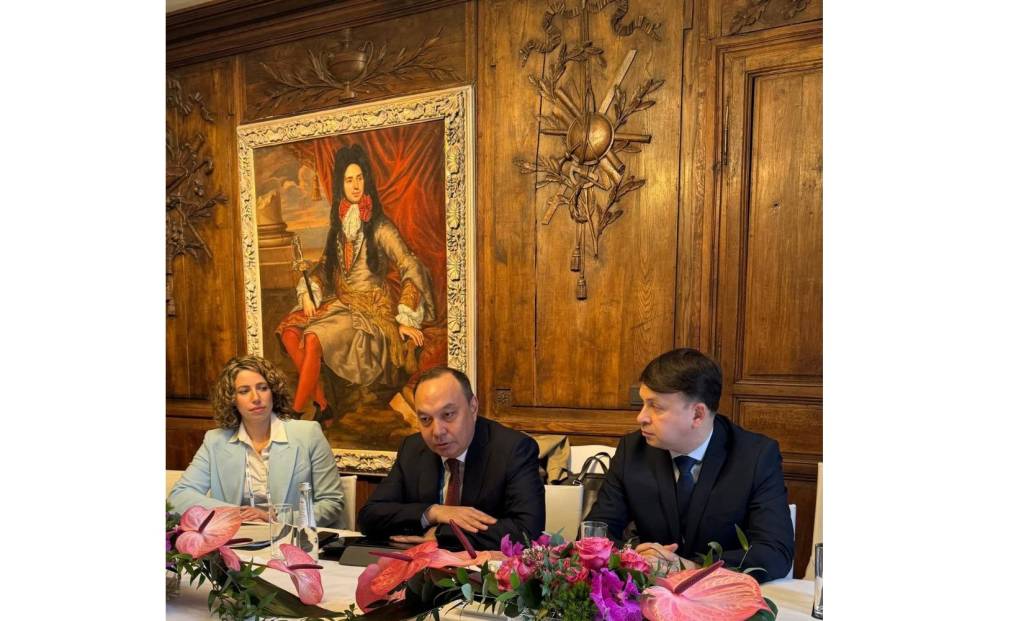WNAM REPORT: The 61st Munich Security Conference was held in Germany from February 14 to 16, under the theme “Multipolarity”.
This annual global forum has brought together around 60 heads of state and government, more than 150 foreign and defense ministers, and leaders of international organizations. In total, over 800 participants, including experts, business representatives, and non-governmental organizations, attended the conference.
Mr. Eldor Aripov, Director of the Institute for Strategic and Regional Studies (ISRS) under the President of the Republic of Uzbekistan, spoke at the panel discussion titled “Caspian Conundrum: Rethinking Climate and Conflict in Eurasian Security”. In his speech, he highlighted the severe climate challenges facing Central Asia.
The expert noted that Central Asia is among the most vulnerable regions to climate change. Over the past 30 years, temperatures in the region have risen twice as fast as the global average, increasing by 1.5 degrees Celsius, compared to the global average of 0.7 degrees Celsius.
In this regard, Mr. Aripov emphasized that climate change poses serious risks for the countries of Central Asia. Among the key factors, he highlighted the accelerated degradation of land, affecting 37% of the territory, the rapid melting of glaciers, which have lost 30% of their volume over the past 50-60 years, and the increasing water shortage. The situation is further complicated by the projected population growth in the region, expected to reach 100 million by 2050. According to World Bank estimates, the combined impact of these factors could lead to a 30% decline in agricultural crop yields in the region.
Despite these significant challenges, Central Asian countries were, for a long time, unprepared to consolidate efforts in addressing environmental issues, noted the ISRS Director. However, the situation has fundamentally changed: mistrust, skepticism, and unhealthy competition have been replaced by trust, mutual understanding, and a collective commitment to finding solutions to the region’s common problems.
It was emphasized that a significant role in this shift was played by Uzbekistan’s new foreign policy course under the leadership of President Shavkat Mirziyoyev, who introduced the principle of “zero problems with neighbors”. This became a key factor in the region’s consolidation, contributing to the development of a unique model of interstate cooperation.
Mr. Eldor Aripov highlighted that climate change and water resource shortages have become primary drivers of regional cooperation. To effectively coordinate climate adaptation efforts, several initiatives have been launched, including the Dialogue on Water for Climate Action, the establishment of the Central Asian University for Environmental and Climate Change Studies (Green University), the adoption of the regional Green Agenda for Central Asia, and the approval of a regional strategy for climate adaptation.
Additionally, Central Asian countries are coordinating their efforts on international platforms. During the UN Climate Change Conference in Dubai, the Central Asian Regional Pavilion was organized under the slogan “5 countries – 1 region – 1 voice”, with participation from all Central Asian nations, promoting a unified regional stance on climate issues.
Speaking about efforts undertaken at the national level, Mr. Aripov noted that Uzbekistan has set a strategic goal to ensure environmental sustainability and economic growth by transitioning to a resource-efficient, green development model.
According to him, significant progress has already been made in this direction. Water-saving technologies have been implemented on nearly 2 million hectares of irrigated land, covering 46% of the agricultural area in use. Additionally, over the past five years, Uzbekistan has commissioned modern energy capacities totaling 9.6 gigawatts. By 2030, the share of renewable energy sources is expected to increase from 16% to 54%.
The ISRS Director also highlighted several challenges facing the region. One of the key issues is the lack of financial resources for transitioning to climate-neutral technologies and adapting to the effects of climate change. According to World Bank estimates, to expand the use of renewable energy sources and modernize energy networks, the region will require at least $20 billion in investments over the next 5 to 10 years.
In this regard, Mr. Aripov emphasized that attracting investments, innovations, and technologies to the water and energy sector, as well as training specialized professionals, remains a top priority. “These issues will be discussed at the “Central Asia – European Union” summit and at the conference on global climate challenges in Central Asia, both of which will be held in our country this year”, he stated. The expert expressed confidence that Uzbekistan will become a key platform for uniting regional and international efforts in the fight against climate change.
The Munich Security Conference (MSC), held since 1963, is the world’s leading forum for discussing international policy and presenting diplomatic initiatives aimed at addressing the most pressing global challenges. It brings together heads of state and government, ministers, representatives of international and non-governmental organizations, as well as industry leaders, media, academics, and civil society members.

